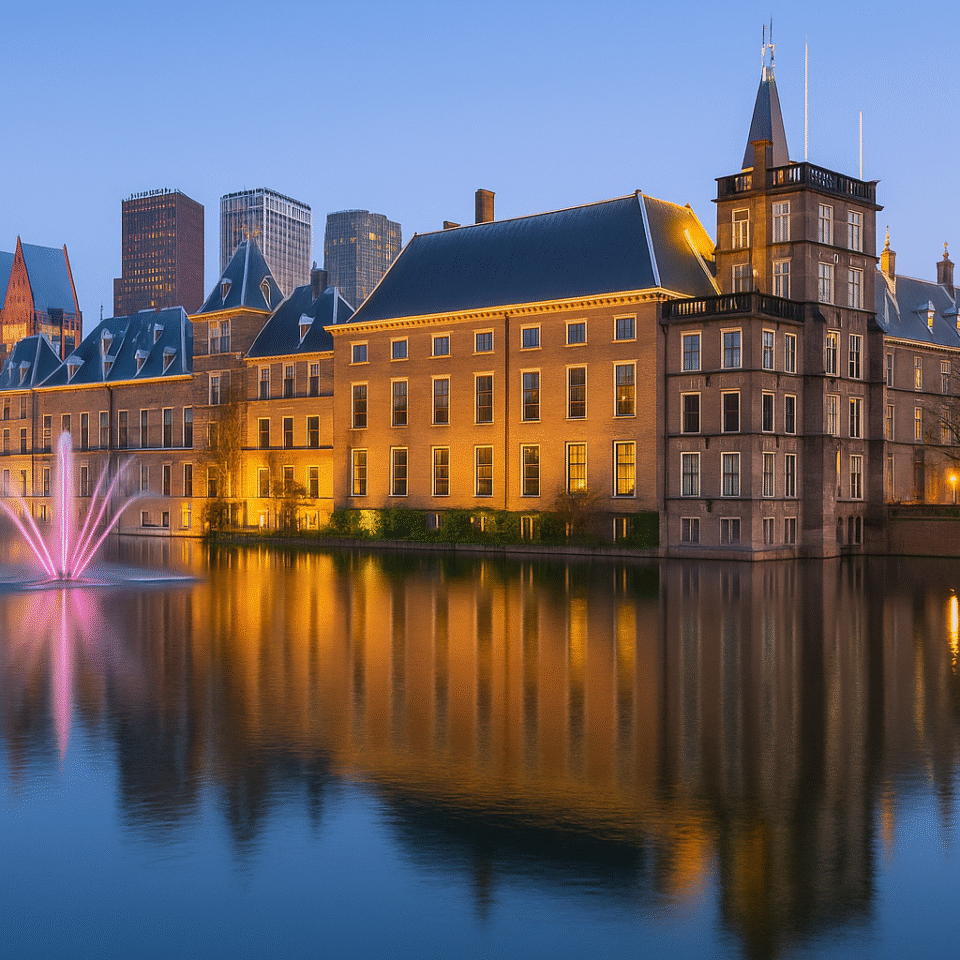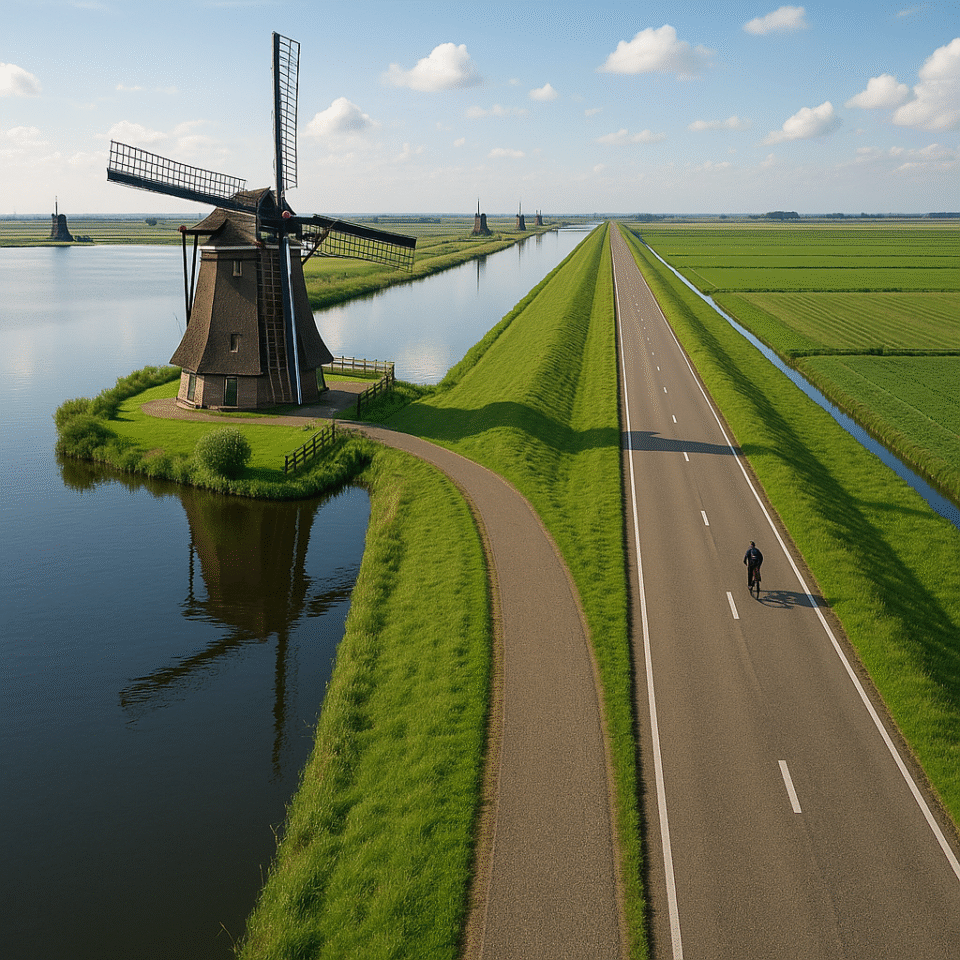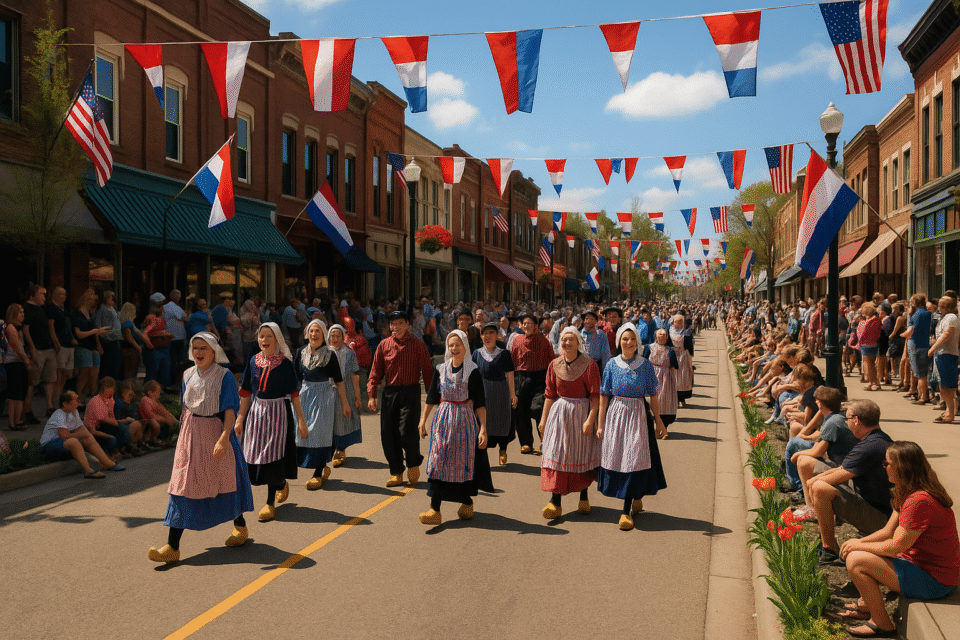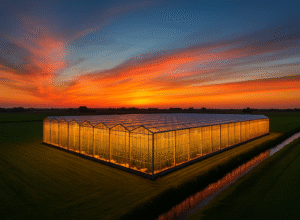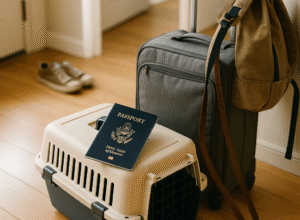Coastal Sophistication: Where Diplomacy Meets Beach Life
The Hague blends international significance with seaside charm, creating a uniquely livable Dutch city that many Americans overlook. Discover how this political capital offers the perfect balance of cultural richness, career opportunities, and quality of life.
Ever wonder what it would be like to attend a high-powered meeting in the morning and walk barefoot on the beach that same afternoon? In The Hague, this isn’t just possible – it’s a regular part of life. While Amsterdam gets the lion’s share of American (and everyone’s) attention, The Hague (Den Haag to locals) offers something quite different: a cosmopolitan city where international diplomats bike alongside surfers heading to catch waves.
As the seat of Dutch government and home to major international courts and organizations, The Hague has developed a worldly atmosphere that still feels authentically Dutch. Over half the residents have international backgrounds, making it one of the most diverse cities in the Netherlands – and particularly welcoming for Americans looking to relocate or visit.
Why This City Matters for Americans
The Hague’s dual identity as both political center and beach town creates an appealing blend for Americans curious about or considering relocation to the Netherlands. The city offers substantial career opportunities in international organizations, law, diplomacy, technology, and multinational corporations. At the same time, its North Sea location, abundant green spaces, and family-friendly infrastructure make it exceptionally livable.
Unlike Amsterdam’s tourist crowds or Rotterdam’s industrial edge, The Hague maintains a certain refinement without becoming stuffy. The international community is substantial enough that you won’t feel like the only foreigner, yet the city retains its Dutch character in architecture, cycling culture, and daily rhythms.
Fast Facts
- Population: Approximately 560,000 (third-largest city in the Netherlands)
- Province: South Holland
- Distance from Amsterdam: 52 km (32 miles) southwest; around 50 minutes by train
- Language(s): Dutch (official); English widely spoken
- Known for: Seat of Dutch government and royal family; “International City of Peace and Justice” (home to the International Court of Justice, International Criminal Court, and Europol); North Sea coastline with Scheveningen beach resort
Getting There and Getting Around
The Netherlands’ excellent transportation network makes reaching The Hague straightforward from anywhere in the country or abroad. Most international travelers arrive via Amsterdam’s Schiphol Airport, where you can catch a direct 37-minute train to Den Haag Centraal station. Rotterdam The Hague Airport offers another option for European flights, about 40 minutes from the city center by public transit.
By train, The Hague connects easily to other major Dutch cities: around 50 minutes from Amsterdam, 20 minutes from Rotterdam, and 40 minutes from Utrecht. You’ll arrive at either Den Haag Centraal or Hollands Spoor station, both offering easy connections to the city’s comprehensive tram and bus network.
Driving takes about an hour from Amsterdam (via the A4 motorway) or 30 minutes from Rotterdam, though like most Dutch cities, having a car in The Hague is entirely optional. The public transportation system is extensive, reliable, and easy to navigate with an OV-chipkaart (transit card).
For Americans new to Dutch transit, remember that “Den Haag” is what you’ll see on signs and schedules rather than “The Hague.” And don’t miss the opportunity to experience the city like a local by renting a bicycle; The Hague’s wide lanes and dedicated cycling infrastructure make it less intimidating than Amsterdam for newer cyclists.
First Impressions & Local Vibe
Walking through The Hague, you’ll immediately notice a city of balanced contrasts. Stately government buildings and embassies create a sense of formal importance, while leafy parks and sea breezes soften the atmosphere. The pace feels measurably calmer than Amsterdam, with noticeably fewer tourists and a stronger emphasis on work-life balance.
The city’s character changes as you move through different areas: the center exudes governmental gravitas, the Statenkwartier neighborhood feels intellectual and artistic, while Scheveningen embraces beach culture complete with surfers and seafood shacks. What connects these diverse areas is an unpretentious sophistication and international outlook.
Many American expats choose The Hague for its family-friendly environment. You’ll regularly see children playing in well-maintained playgrounds and families cycling together along wide, safe paths. The city’s green spaces and beaches provide ample outdoor recreation, while its museums and cultural institutions offer enrichment.
For young professionals, The Hague offers a more measured pace than Amsterdam but still provides plenty of cultural stimulation, from art galleries to live music venues and tech meetups. The international community creates natural networking opportunities, especially for those working in law, policy, technology, or global organizations.
The city’s openness extends to attire as well – you’ll see everything from formal business wear (diplomats and government officials abound) to casual beachwear, sometimes in the same café. This flexibility reflects The Hague’s comfortable relationship with both its serious international role and its more relaxed coastal identity.
Things to Do & See
For a city with a serious reputation, The Hague offers surprising variety in attractions and experiences. History and politics intertwine at the Binnenhof, a 13th-century Gothic complex housing Dutch Parliament – one of the oldest parliament buildings still in use worldwide. The adjacent Hofvijver pond creates a picturesque setting, especially at sunset when the historic buildings reflect in the water.
Art enthusiasts shouldn’t miss the compact but world-class Mauritshuis Museum, home to Vermeer’s iconic “Girl with a Pearl Earring” and masterpieces by Rembrandt and other Dutch Golden Age painters. For a unique artistic experience, visit Panorama Mesdag – a 360-degree cylindrical painting from 1881 that immerses you in a historic view of Scheveningen beach.
Speaking of Scheveningen, this seaside district represents The Hague’s playful side. Its long sandy beach, bustling promenade, and landmark pier (complete with a Ferris wheel and bungee jumping platform) draw locals and visitors year-round. Summer brings sunbathers and volleyball tournaments, while winter offers dramatic North Sea storms and the famous New Year’s Dive, where thousands brave the icy waters on January 1st.
For those interested in global affairs, the Peace Palace (Vredespaleis) provides both architectural beauty and historical significance as home to the International Court of Justice. Its neo-Renaissance façade and carefully manicured gardens make it worth visiting even if you’re not a law enthusiast.
Families appreciate attractions like Madurodam, a miniature park showcasing scaled-down versions of Dutch landmarks, from Amsterdam’s canal houses to windmills and modern Rotterdam architecture. It’s both entertaining and educational – a clever introduction to Dutch culture and design.
The Hague’s event calendar reflects its diverse population. The annual Tong Tong Fair (late spring) celebrates Indonesian-Dutch heritage with music, dance, and a sprawling food hall – a testament to the Netherlands’ colonial history and multicultural present. King’s Day (April 27) brings city-wide celebrations, while summer features beach festivals and international fireworks competitions at Scheveningen.
For everyday experiences, explore the Haagse Markt, one of Europe’s largest open-air markets, where you can sample fresh stroopwafels, herring, and international street foods while browsing everything from clothing to electronics. When you need a quieter moment, the city offers numerous parks and gardens to escape the urban energy.
The best time to visit The Hague spans late spring through early fall, when mild temperatures allow for both city exploration and beach enjoyment. However, each season offers distinct charms – spring brings tulips and renewed energy, while winter transforms the city with holiday markets and cozy café culture.
Food & Drink Scene
The Hague’s culinary landscape reflects its international population and colonial history, with Indonesian cuisine standing as a particular highlight. The city boasts some of the Netherlands’ best Indonesian restaurants, from casual warungs to upscale dining rooms. Don’t leave without experiencing rijsttafel (rice table) – a feast of small dishes spanning the flavor spectrum from mild to fiery, sweet to savory.
Beyond Indonesian cuisine, The Hague offers global dining options in every neighborhood. There’s a small Chinatown near Wagenstraat with excellent Asian restaurants, alongside Indian, Middle Eastern, Italian, and yes, American-style establishments for when homesickness hits. Most restaurants have English menus and English-speaking staff, making dining relatively stress-free for newcomers.
For traditional Dutch experiences, try raw herring with onions from a fish stand (a local rite of passage), crispy bitterballen (meat croquettes) alongside local beer, or thick Dutch pancakes topped with sweet or savory ingredients. The growing craft beer scene includes local breweries like Kompaan, though you’ll find familiar Heineken and Amstel everywhere too.
Coffee culture thrives in The Hague, with café terraces filling at the first hint of sunshine. Historic squares like the Plein offer prime people-watching alongside your coffee and apple pie (appelgebak). For sweet treats, sample fresh stroopwafels at the Haagse Markt or artisanal chocolates at specialty shops like Hop & Stork in the elegant Passage shopping arcade.
While The Hague’s nightlife is more subdued than Amsterdam’s, the Grote Markt area offers a concentration of bars and live music venues popular with locals. Beach clubs at Scheveningen transform from casual daytime spots to energetic nighttime venues during summer months, often featuring DJs and dancing with ocean views.
For Americans missing specific products from home, international grocery stores stock familiar brands, and the city’s substantial expat community means you’re never far from someone who can point you toward where to find that elusive ingredient or comfort food you’re craving.
Living There as an Expat
For Americans considering relocation, The Hague offers a relatively smooth transition into Dutch life. The city’s international character, widespread English usage, and established expat community create a welcoming environment, while its human scale prevents the overwhelming feeling that can accompany moves to larger global cities.
Housing presents both opportunities and challenges. The good news: The Hague offers more space for your money than Amsterdam, with options ranging from historic townhouses to modern apartments and even beachside properties. The challenge: like most Dutch cities, demand exceeds supply, creating a competitive market with rising prices. Working with agencies experienced with international clients, such as Expat Relocation The Hague, can smooth the process, though you’ll need to act quickly when you find a suitable property.
The job market particularly favors those in international relations, law, technology, and education. With approximately 200 international institutions and NGOs, plus major corporations like Shell, qualified professionals find ample opportunities. The growing cybersecurity sector (branded as The Hague Security Delta) represents another strong employment area. While Dutch fluency opens more doors, many international organizations and companies operate primarily in English.
For entrepreneurs and freelancers, the Dutch-American Friendship Treaty (DAFT) provides a viable path to residency through business establishment – a route many Americans have successfully navigated to build lives in The Hague.
Daily infrastructure supports a high quality of life. Excellent public transportation connects all neighborhoods, while the comprehensive cycling network makes car-free living practical and enjoyable. Healthcare meets high European standards, with several hospitals, clinics, and English-speaking medical professionals. Once enrolled in the required Dutch health insurance, you’ll find medical care accessible and efficient.
Safety rarely concerns residents, with violent crime rates far below those in comparable American cities. The most common issues involve bicycle theft and occasional pickpocketing in tourist areas – minor concerns compared to challenges in many U.S. urban areas.
The expat community provides built-in social connections through organizations like the American Women’s Club, international church congregations, sports leagues, and countless interest-based meetups. Because such a high percentage of residents have international backgrounds, locals generally welcome newcomers and understand integration challenges.
Families with children benefit from The Hague’s extensive international education options – the region boasts the country’s highest concentration of international schools, including American, British, French, and German institutions. Many expat families cite the safe environment, quality education, and family-oriented amenities as key factors in their relocation decisions.
Day Trips & Nearby Attractions
The Hague’s strategic location in the western Netherlands places numerous attractions within easy reach for day trips. Just 15 minutes by train brings you to Delft, a picturesque canal city famous for its blue-and-white pottery and historic connections to the Dutch royal family. Wandering Delft’s old town, climbing its church tower, or touring the Royal Delft porcelain factory offers a perfect small-city contrast to The Hague’s more cosmopolitan atmosphere.
Another 15–20 minutes northeast by train takes you to Leiden, a charming university town with Amsterdam-like canals minus the crowds. As Rembrandt’s birthplace and home to the country’s oldest botanical garden, Leiden balances historical significance with youthful energy from its student population.
Rotterdam, just 20–30 minutes south by train, presents the Netherlands’ bold, modern face with its striking contemporary architecture – including the iconic Erasmus Bridge, curious Cube Houses, and impressive Markthal. As Europe’s largest port city, Rotterdam offers harbor tours, cutting-edge museums, and an edgier cultural scene than The Hague’s more established institutions.
For nature enthusiasts, the Meijendel dune landscape just north of the city provides miles of walking and cycling paths through protected coastal habitats. Part of Hollandse Duinen National Park, this area hosts wild highland cattle and hidden forest cafés serving Dutch pancakes – perfect for refueling during a day of outdoor exploration.
Within an hour’s journey, you can visit iconic Dutch attractions like the UNESCO-listed windmills at Kinderdijk, the spectacular seasonal Keukenhof Gardens, or the medieval charm of cities like Haarlem and Utrecht. Even the cheese market in Gouda lies within 45 minutes of The Hague.
For international day trips, Belgium sits just across the border, with Brussels approximately two hours away by train. From Rotterdam, the high-speed Eurostar train reaches Paris in about three hours, making even international excursions feasible without overnight stays.
This exceptional connectivity represents one of The Hague’s strongest assets – you can experience everything from bustling cities to tranquil countryside, historic villages to modern architecture, all while maintaining your home base in this comfortable, international city.
Pros & Cons of The Hague
Pros:
-
International environment with widespread English usage: With around 59% of residents having international backgrounds, The Hague welcomes newcomers and operates comfortably in English alongside Dutch.
-
Coastal location with urban amenities: Few major European cities with such political importance offer beach access combined with cultural institutions, dining variety, and career opportunities – this balance creates an exceptional quality of life.
-
Political and cultural significance: Home to Dutch government, royal palaces, and international courts, The Hague offers intellectual stimulation, notable museums, and a well-educated, globally minded community.
-
Excellent connectivity: The comprehensive public transportation network and central location make traveling within the Netherlands and to neighboring countries simple and convenient, all without needing a car.
Cons:
-
North Sea weather patterns: The coastal climate brings considerable rainfall, frequent wind, and generally cooler temperatures than inland areas. Winters tend toward gray and damp, while summers include chilly days alongside warmer ones.
-
Competitive housing market: Like most Dutch cities, finding accommodation involves navigating a tight market with rising prices. While more affordable than Amsterdam, securing desirable housing requires patience and often quick decision-making.
-
Quieter nightlife than larger capitals: The Hague maintains a more measured pace, with limited late-night options compared to Amsterdam or major European capitals. Some neighborhoods feel notably quiet on weeknights. (If you’re like me, this is actually a pro.)
-
Dutch bureaucracy challenges: Settling in requires navigating various registration processes and paperwork, often in Dutch. While not specific to The Hague, this administrative hurdle represents a common adaptation challenge for Americans.
Is The Hague Right for You?
The Hague offers a uniquely balanced Dutch experience – international yet authentic, urban yet coastal, professional yet relaxed. For Americans seeking European living with international stature but a calmer pace, this “royal city by the sea” presents a compelling option.
Families particularly thrive here, benefiting from safe neighborhoods, quality international schools, and abundant recreational opportunities. Career-focused individuals find substantial opportunities in international organizations, legal institutions, technology firms, and global corporations. Even remote workers appreciate the city’s reliable infrastructure, comfortable working spaces, and proximity to both nature and urban amenities.
What The Hague doesn’t offer is the constant stimulation and round-the-clock energy of a major metropolis. It’s not Amsterdam with its tourist buzz or Rotterdam with its architectural boldness. Instead, it provides something perhaps more sustainable: a place where meaningful work, cultural enrichment, outdoor enjoyment, and genuine community coexist in harmonious balance.
If you value quality of life alongside career prospects, appreciate cultural diversity within a manageable city footprint, and find appeal in both political significance and seaside relaxation, The Hague might just be your ideal Dutch destination – whether for a visit or something more permanent.
